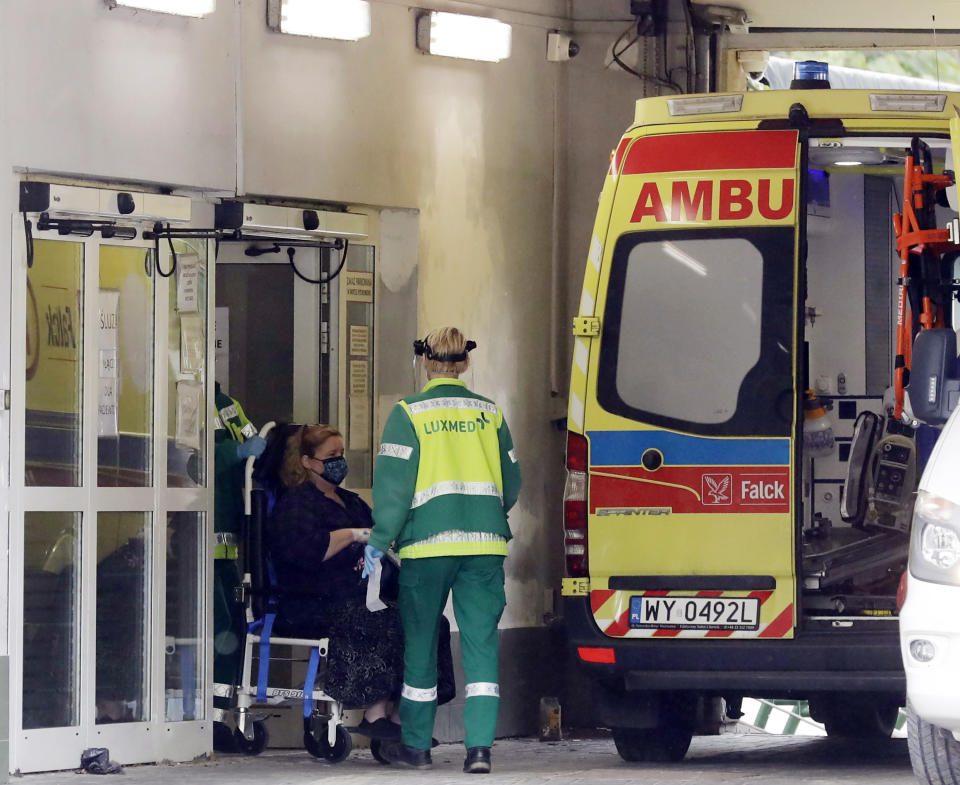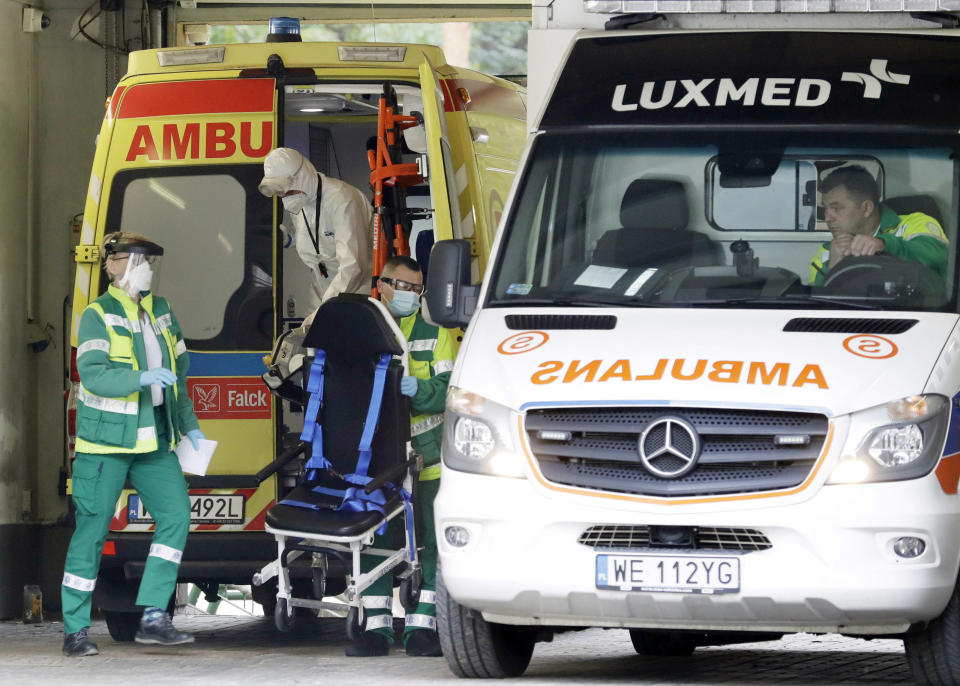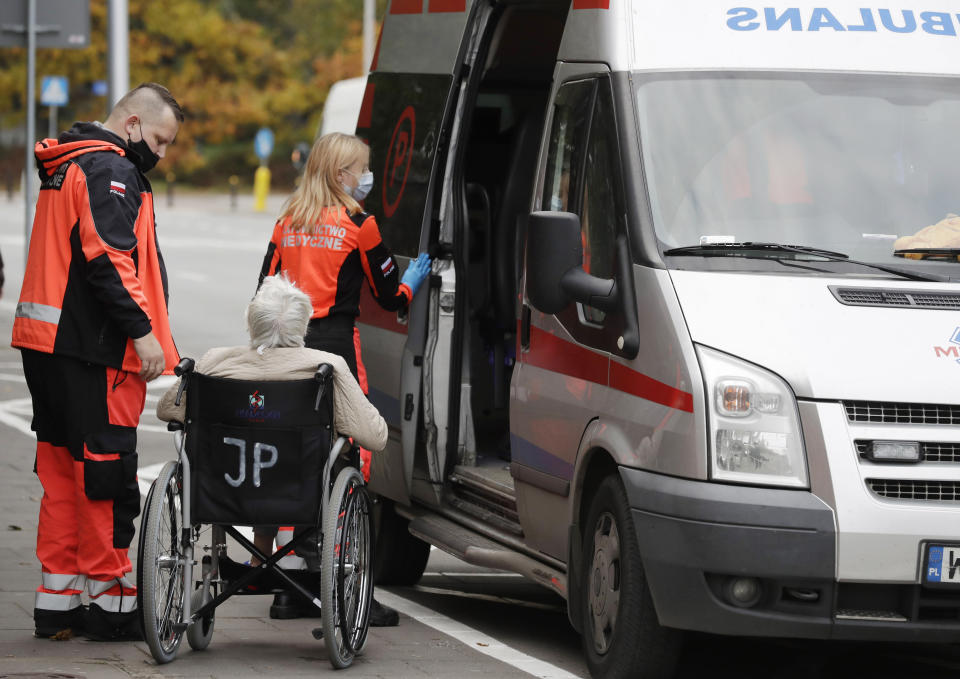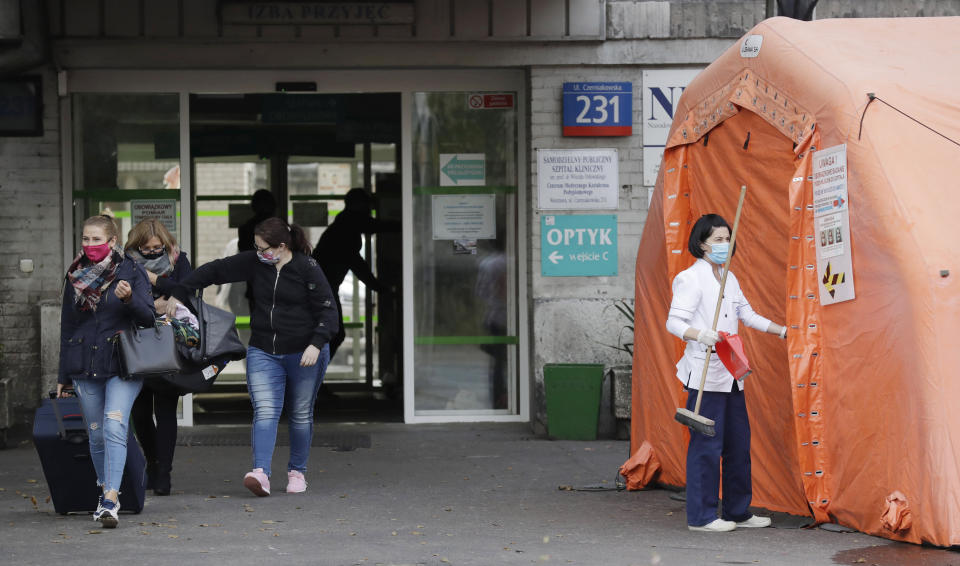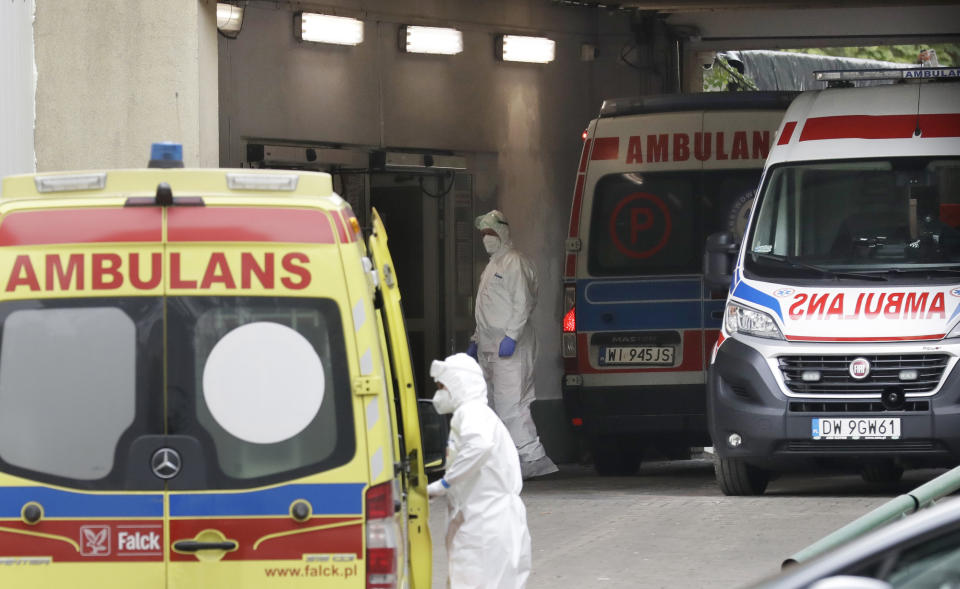Poland faces restriction upgrade, but no lockdown, PM says
WARSAW, Poland (AP) — Poland’s prime minister signaled Wednesday that the whole country faces being placed on the highest restriction level short of a full lockdown, as health authorities registered a record in new confirmed COVID-19 infections.
Mateusz Morawiecki said he would like the current "red zones” to be extended nationwide, starting Saturday. The designation involves, among others, wearing masks in all outdoor public spaces, a ban on social gatherings including wedding parties, limits on the number of customers in shops and passengers on public transport, and shorter restaurant opening hours. Swimming pools and gyms would have to close.
The decision is to be taken Thursday, he told Polsat News TV.
The capital, Warsaw, and other major cities are already designated “red zones,” as are some 150 of Poland's 400 counties.
On Wednesday, the country of 38 million registered a record of over 10,000 new confirmed infections, bringing the total to almost 203,000.
Earlier this month all of Poland was declared a yellow zone — the first in the two-tier system — where masks must be worn in all public indoor places and social distancing observed.
Morawiecki said earlier in the day that his government would pursue a “middle of the road” strategy of defending people’s health and lives while also protecting the economy and jobs, but avoiding a full lockdown.
“Our strategy is to structure social and economic life in a way that will allow us to continue to learn, work and live without locking down the economy, but at the same time to break the transmission belt of infection," Morawiecki told lawmakers.
Speaking during a parliamentary debate on special anti-COVID-19 legislation, Morawiecki said the government was preparing for long months, “hopefully not years,” of struggle before the pandemic can be brought under control.
The number of hospital beds for COVID-19 patients is being raised from some 17,000 now to 30,000, while Warsaw's National Stadium and conference halls in large cities are being turned into temporary hospitals. Over 2,000 ventilators remain available.
But experts say there may not be enough medical personnel to operate them. Especially trained anesthesiology nurses are in short supply.
Physical therapy centers for convalescents are to open in many regions, and special care is to be offered to the elderly to allow them to stay safely home and avoid exposure to the virus.
The powerful ruling party leader and deputy prime minister, Jaroslaw Kaczynski, said in an interview that all attention is now on ensuring the health care system functions smoothly, even under the bleakest scenario.
For decades, Poland's health care system has remained underfunded and low wages have forced many medics to seek better-paid jobs abroad.
Lawmakers were debating proposals to increase funds for medics involved in treating COVID-19 patients, and to temporarily exempt them from legal responsibility for mistakes in treatment.
The decisions come at a time when opinion polls show shrinking support for the right-wing government.
With the return to schools and universities being linked with the recent sharp spike in infections, the government wants all primary schools to switch to remote learning, and plans to adopt a mixed system for older students.
Fourteen among Poland's more than 130 Roman Catholic bishops have been reported as infected and a senior bishop died this week. A spokesman for the Episcopate, Mgr. Leszek Gesiak, said the source of the infections was not clear as not all of them them took part in a plenary meeting this month. The bishops were criticized for taking a group photo there without masks.
___
Follow AP pandemic coverage at http://apnews.com/VirusOutbreak and https://apnews.com/UnderstandingtheOutbreak

